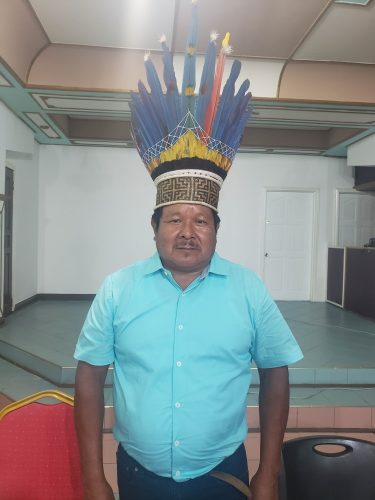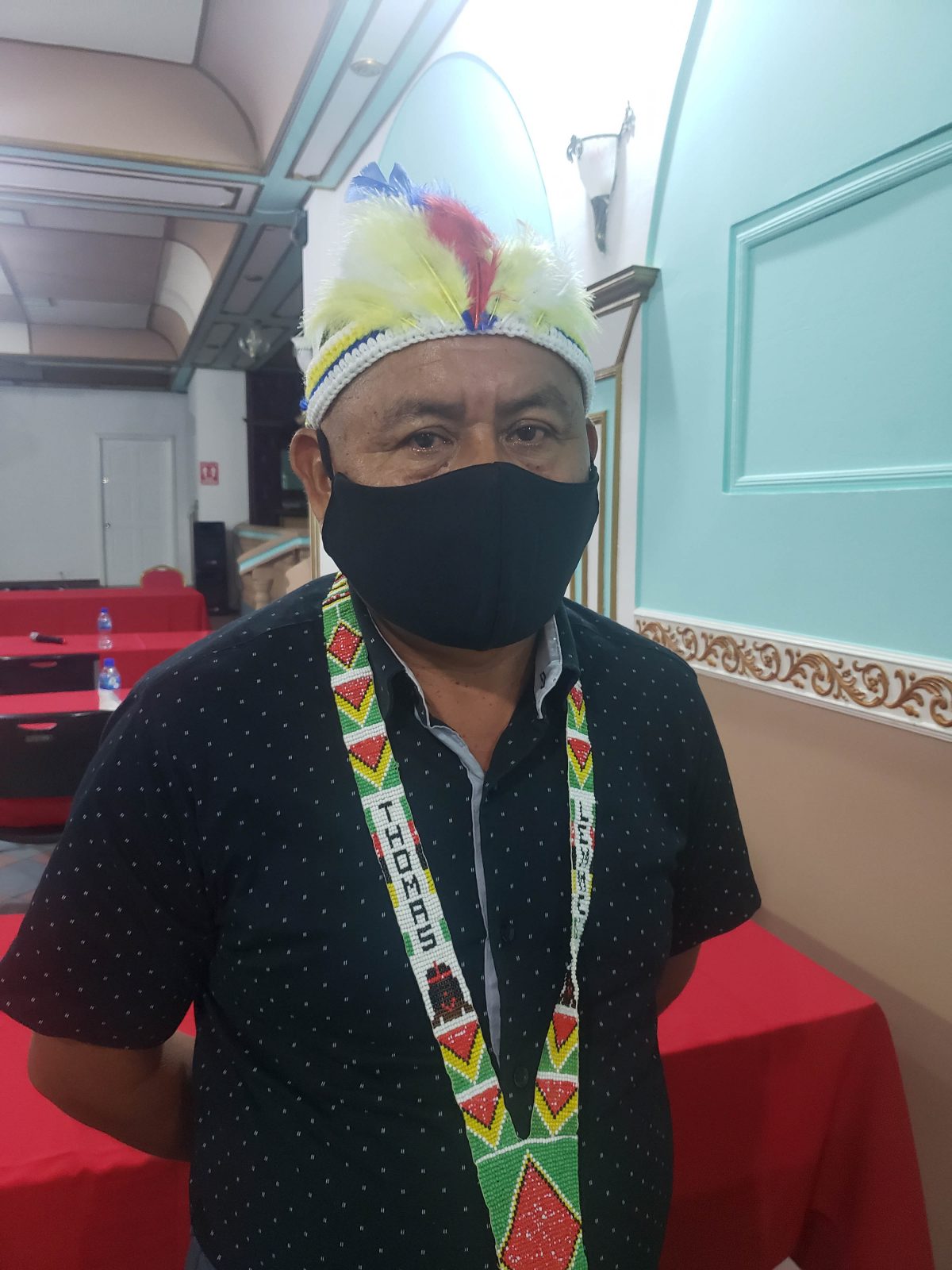With climate change a growing concern, especially following the devastating floods that heavily impacted Region Seven, the Upper Mazaruni District Council (UMDC) has repeated its call for their land rights to be legally recognised.
It has been 23 years since the Indigenous peoples of the Upper Mazaruni filed a court action against the Government of Guyana, seeking legal recognition to their traditional and ancestral lands.
To date, the Court is yet to make a decision on the matter. Chairman of the UMDC and Toshao of Kato, Mario Hastings, told a press conference yesterday that it has been over two years since the matter was last called in the courts, adding that that no substantial reason was given as they were told that the delay is due to a backlog of cases.

“We took this case to Court more than two decades ago in a continuation of the struggle of our forefathers to secure control over our territory for the benefit of our future generations. Archaeological evidence shows that our people have occupied the Mazaruni River basin for over two thousand years. Our homes, cultures and livelihoods depend on our territory. When Guyana gained its independence more than half a century ago and constituted the Amerindian Land Commission to document indigenous lands in the country, our leaders requested to the commission that the six villages in the Upper Mazaruni be granted joint and collective title to our territory. The request was ignored and continues to be so to this day,” he lamented.
He noted that communities in the Upper Mazaruni received separate land titles in 1991 but the lands that were given have little to no cultural meaning and large swathes of their traditional land were kept as state property. According to Hastings, this was what led people living in the area to take the case to court seeking a judicial declaration confirming their rights to the land. He noted that although international human rights bodies such as the United Nations Committee on the Elimination of Racial Discrimination have called upon Guyana to legally recognise the lands, territories and resources that indigenous peoples have traditionally owned or occupied, this was not done. He pointed out that the decades-long denial of their land rights violates their constitutional rights as per the constitution of Guyana.
In addition, he said, the 23-year delay in a decision blatantly denies their right to access justice, which according to the Inter-American Commission on Human Rights, requires a case to be determined within a reasonable time. As such, he said, the UMDC is calling on the Chancellor of the Judiciary and the Chief Justice to uphold their duty to oversee the effective functioning of the court. The UMDC is also calling on the government to legally recognise the rights of the Indigenous peoples’ land by granting titles to the territories that they have traditionally used. “We have been patiently waiting for legal recognition of our land rights for half a century.”
Meanwhile, Deputy Chairman of the UMDC and Toshao of Kamarang, Lemuel Thomas, contended that it is crucial that this issue be swiftly addressed because of the recent flooding which left several communities along the Mazaruni riverbanks devastated.
“There is an urgency now having experienced the flooding because of how much of our titled land was affected. So our call for the court to pronounce their judgment is very important for us because our survival is dependent on the land,” he declared.
Thomas related that as part of their recovery process, they were told by the international and regional teams that travelled to the region to do the damage assessment that they must consider relocation as flooding disasters may become more common in the area due to climate change.
The toshao noted that while this may seem simple enough, they cannot relocate to lands that are beyond the boundaries of their titled lands. “That’s why this case is very important for us,” he explained.
Hastings, Thomas, and the Toshao of Jawalla, Verron Henry, all described the June flooding as “historic” with majority of their communities affected.
In Kako, Hastings said over 16 homes were flooded and the families had to relocate to higher ground temporarily. He noted that they are considering permanent relocation to higher ground to avoid being affected in the future.
“We know that things will get worse and we have to be ready. A lot of our people were affected and we don’t think it is wise to build back their homes knowing that climate change is real,” he posited.
The recovery process is underway in the three villages but this is being hindered by the rains. They expect that it would be nine months before the communities fully recover.






